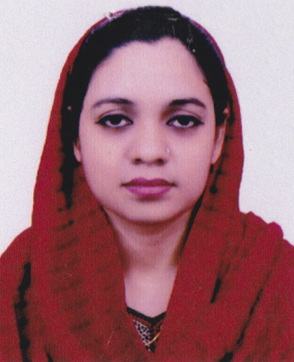DEPARTMENT OF PHYSIOLOGY

Departmental Objectives
List of Competencies to Acquire
Faculty Members of Physiology Department
| Photo | Name & Qualification | Designation | Date of Birth & Joining |
|---|---|---|---|
 |
Dr. Khalada Akter MBBS, MD (Physiology) |
Associate Professor (C.C.) & Head |
03-03-1987 08-08-2020 |
 |
Dr. Towhidul Iqram MBBS, MPhil. (Physiology) |
Assistant Professor | 28-12-1992 01-01-2023 |
 |
Dr. Fhamida Akter MBBS, MD (Physiology) |
Assistant Professor | 30-12-1989 02-11-2024 |
 |
Dr. Jannatul Ferdous Nipa MBBS |
Lecturer | 20-10-1993 01-01-2020 |
 |
Dr. Noshin Nanziba MBBS |
Lecturer | 15-06-1995 04-08-2021 |
 |
Dr. Luthfun Nahar Tina MBBS |
Lecturer | 01-01-1996 15-09-2021 |
 |
Dr. Dibakar Das Gupta MBBS |
Lecturer | 03-06-1996 16-03-2022 |
 |
Dr. Swarna Saha MBBS |
Lecturer | 01-05-1995 01-09-2022 |
 |
Dr. Shuhrat Binte Hossain MBBS |
Lecturer | 01-03-1997 02-09-2023 |
 |
Dr. Palash Chandra Debnath MBBS |
Lecturer | 01-12-1996 08-04-2023 |
| Guest Teacher | |||
 |
Prof. Dr. Dipok Kumar Sunyal MBBS, MPhil. (Physiology) |
Professor | |
Academic Activities
Research Activities